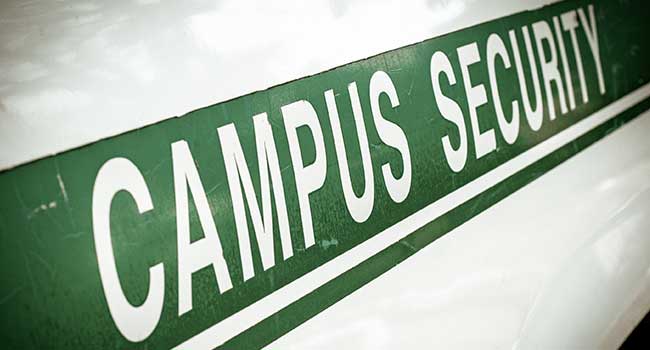
Richland Community College to Establish Own Police Force
The current security staff cannot arrest and transport people to the Macon County Jail and does not have crisis situation training. Richland officials hope that the Public Safety Department will strengthen the school’s ability to handle on-campus situations.
- By Jessica Davis
- September 21, 2018
Richland Community College in Decatur, Ill., is working toward establishing its own police force by the end of the year. On Tuesday, the college’s board of trustees unanimously approved plans to create a Public Safety Department, which will allow RCC to have its own campus officers.
Once the plan is approved by the Illinois Law Enforcement Training and Standards Board, the college will begin to work toward having the department operational by the end of the year, said Dean Hazen, who was sworn in as the department’s chief during Tuesday’s meeting. Plans include hiring two full-time officers in order to always have at least one on campus during peak hours.
“I think we all hope and are confident this will mean we’re a safer campus,” Richland Community College President Cris Valdez said. “I don’t know if we can stop things from happening, but we will have a much quicker response time and a fuller authority to deal with that issue.”
Hazen plans to be particular in the candidate search, as the officer will have the same training and equipment as a standard law enforcement officer. He said he hopes to find candidates with college campus experience.
“I want someone who will be close to the students, yet will keep a respectable boundary,” Hazen said.
The college currently contracts five staff members for on-campus security via Per Mar Security Services. On Tuesday, the board approved a one-year extension of that contract so the company can continue to provide overnight and off-hours campus security.
The current security staff cannot arrest and transport people to the Macon County Jail and does not have crisis situation training. Instead, the college has to call local law enforcement and wait for their arrival. Richland officials hope that the Public Safety Department will strengthen the school’s ability to handle on-campus situations.
According to the board of trustees meeting agenda, the cost for establishing the Public Safety Department is estimated at $175,000, which includes a squad car, evidence and firearms storage, communications equipment, training and uniforms. Once operational, the annual cost is estimated at $407,000.
About the Author
Jessica Davis is the Associate Content Editor for 1105 Media.